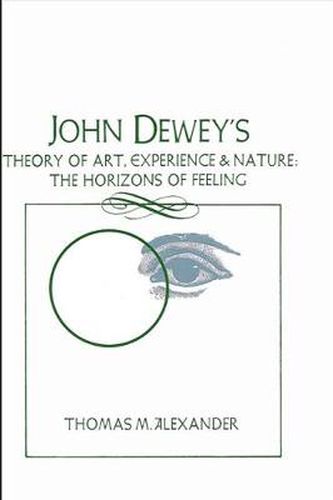Readings Newsletter
Become a Readings Member to make your shopping experience even easier.
Sign in or sign up for free!
You’re not far away from qualifying for FREE standard shipping within Australia
You’ve qualified for FREE standard shipping within Australia
The cart is loading…






Thomas Alexander shows that the primary, guiding concern of Dewey’s philosophy is his theory of aesthetic experience. He directly challenges those critics, most notably Stephen Pepper and Benedetto Croce, who argued that this area is the least consistent part of Dewey’s thought. The author demonstrates that the fundamental concept in Dewey’s system is that of experience and that paradigmatic treatment of experience is to be found in Dewey’s analysis of aesthetics and art. The confusions resulting from the neglect of this orientation have led to prolonged misunderstandings, eventual neglect, and unwarranted popularity for ideas at odds with the genuine thrust of Dewey’s philosophical concerns. By exposing the underlying aesthetic foundations of Dewey’s philosophy, Alexander aims to rectify many of these errors, generating a fruitful new interest in Dewey.
$9.00 standard shipping within Australia
FREE standard shipping within Australia for orders over $100.00
Express & International shipping calculated at checkout
Stock availability can be subject to change without notice. We recommend calling the shop or contacting our online team to check availability of low stock items. Please see our Shopping Online page for more details.
Thomas Alexander shows that the primary, guiding concern of Dewey’s philosophy is his theory of aesthetic experience. He directly challenges those critics, most notably Stephen Pepper and Benedetto Croce, who argued that this area is the least consistent part of Dewey’s thought. The author demonstrates that the fundamental concept in Dewey’s system is that of experience and that paradigmatic treatment of experience is to be found in Dewey’s analysis of aesthetics and art. The confusions resulting from the neglect of this orientation have led to prolonged misunderstandings, eventual neglect, and unwarranted popularity for ideas at odds with the genuine thrust of Dewey’s philosophical concerns. By exposing the underlying aesthetic foundations of Dewey’s philosophy, Alexander aims to rectify many of these errors, generating a fruitful new interest in Dewey.